6 Most Deepest Lakes On Earth
By: Kratika Thu, 03 Feb 2022 12:29:07
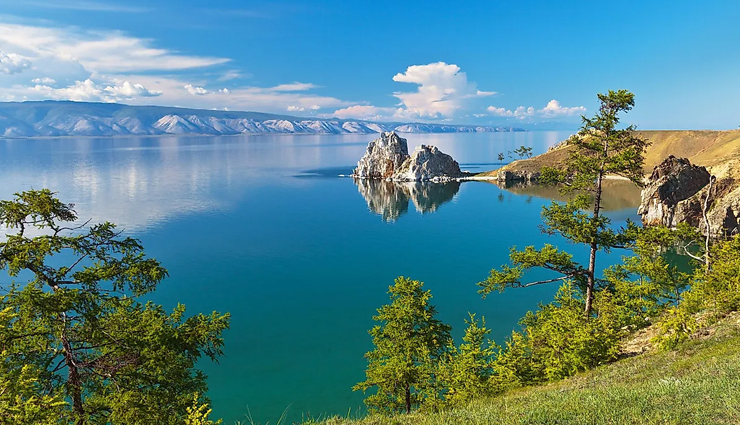
There is something mysterious and enticing about deep lakes. Even when they’re so deep you'll probably never see the bottom, it's exciting to experience them.
If you’ve ever wondered what the deepest lakes in the world are, where they are and just how deep they are, we’ve got answers for you. We’ve also identified the coolest closest town or city near the lakes. So when you’re itching for a lake getaway, you know exactly where to go.
These are the deepest lakes on Earth.
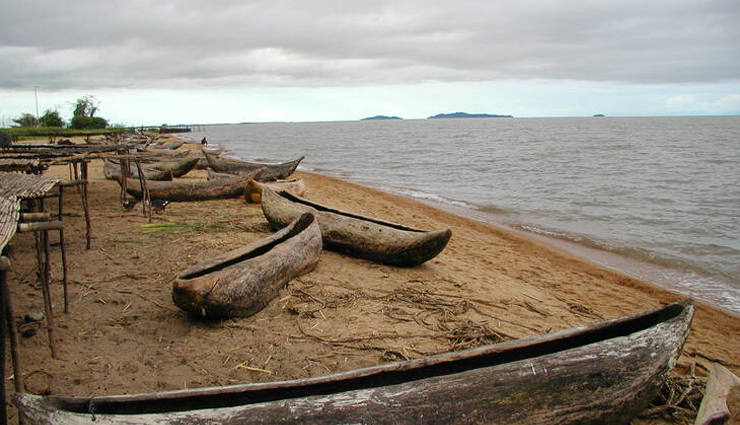
# Lake Malawi, Southeastern Africa
Most commonly referred to as Lake Malawi, this body of water is also called Lago Niassa in Mozambique and Lake Nyasa in Tanzania, the other two countries that share its shores.
The massive lake is famous for having the most species of fish out of all the lakes in the whole world. That's certainly a noteworthy accomplishment. Besides fish, the lake has crocodiles and hippos and its shores see a fair share of monkeys. In Malawi, the lake is part of the UNESCO-listed Lake Malawi National Park.
But don't let this deter you from visiting. The magnitude of its size and depth means that its ecosystems vary widely. If you visit one of its resort towns, like Cape Maclear, you'll find nice beaches and plenty of places to swim safely.
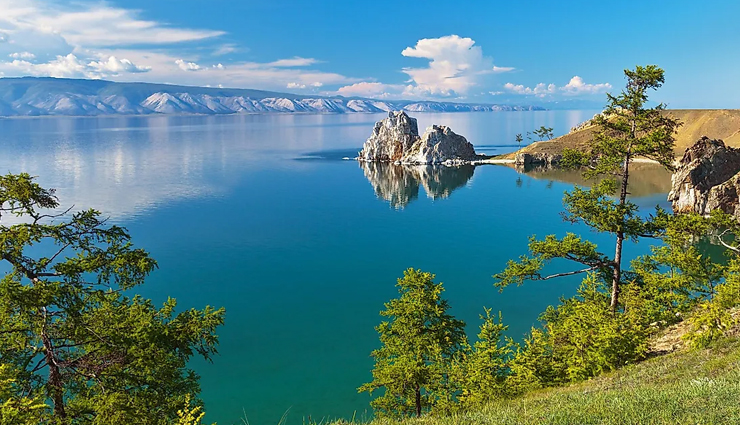
# San Martín Lake, Southern South America
Yet another Patagonian lake to make it onto the list of the world's deepest lakes, O'Higgins (as it is known in Chile) or San Martín (as it is known in Argentina) is fed by rivers and glaciers.
It is known for its milky waters that offer soft shades of blue, almost as if the snow of the surrounding mountains mixed with the deep blue of the sky to make the color.
On the Argentinean side, the lake is within Los Glaciares National Park, one of the country's most lauded natural destinations. The landscape is somewhat extreme, and the weather can be unforgiving.
But if you love unique experiences and want to get close to the South Pole, this is one of the best places to go.
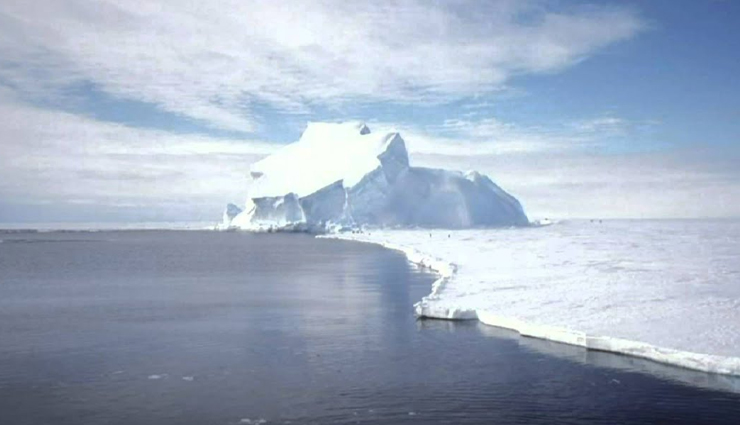
# Lake Vostok, Antarctica
We've got a bit of bad news for you. You probably won't ever get to see the fourth deepest lake in the world. Located in Antarctica, Lake Vostok is actually subglacial, meaning that it is underneath the ice and can therefore be seen only through satellite imagery.
Subglacial lakes form between ice sheets and the bedrock that is underneath them. This particular lake happens to be the largest of its kind in Antarctica and it is right beneath the Vostok research station that belongs to Russia.
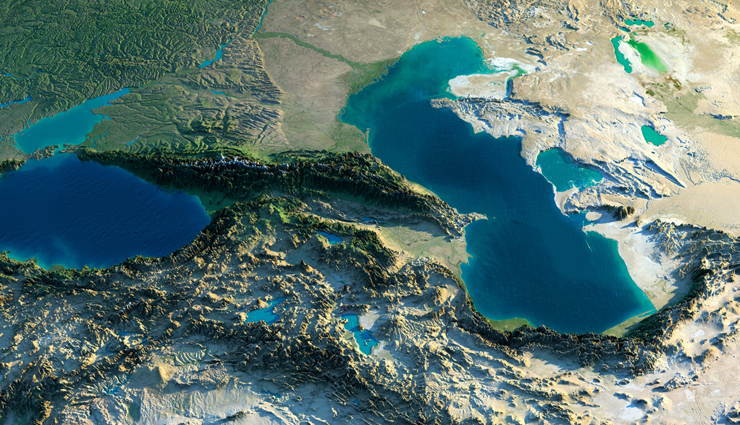
# Caspian Sea, Central Asia
The Caspian Sea may only be the third deepest lake, but it is the largest inland body of water on the entire planet. This massive lake is located within five countries: Azerbaijan, Iran, Kazakstan, Russia and Turkmenistan.
Because of its size, it's difficult to describe what the lake is like (it's called "sea" for a reason). Geography, temperature and surroundings change drastically depending on where you are.
Luckily, there are several beautiful small towns along its shores, including Baku in Azerbaijan, which has a picturesque medieval walled city as well as futuristic modern buildings.
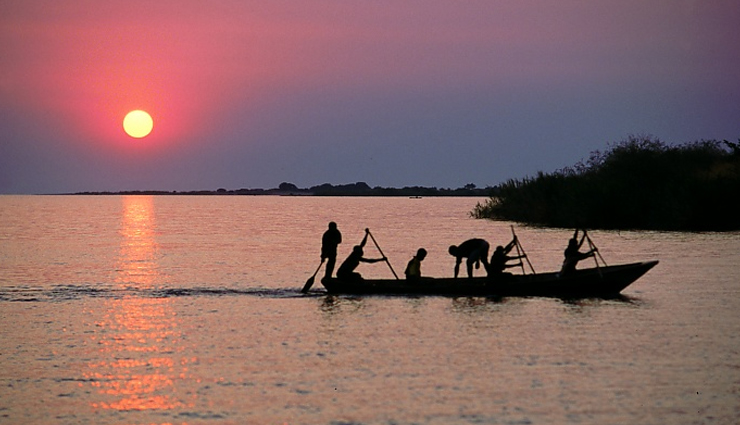
# Lake Tanganyika, Central Africa
Lake Tanganyika is the second-oldest freshwater lake as well as the second-deepest lake. It is one of the African Great Lakes, with a slim but long body that takes it through Tanzania, the Democratic Republic of the Congo, Burundi and Zambia.
The lake is so long that it is the entire border between Tanzania and DRC. These two countries also have the majority of the lake within their borders.
Another thing the lake can boast about is being one of the world's oldest, which explains its hundreds of endemic species and great biodiversity.
Tanganyika is an amazing place to do a water safari, no matter which country you visit. But we suggest visiting the Tanzanian side and doing an excursion to Katavi National Park, which lies on its shores.
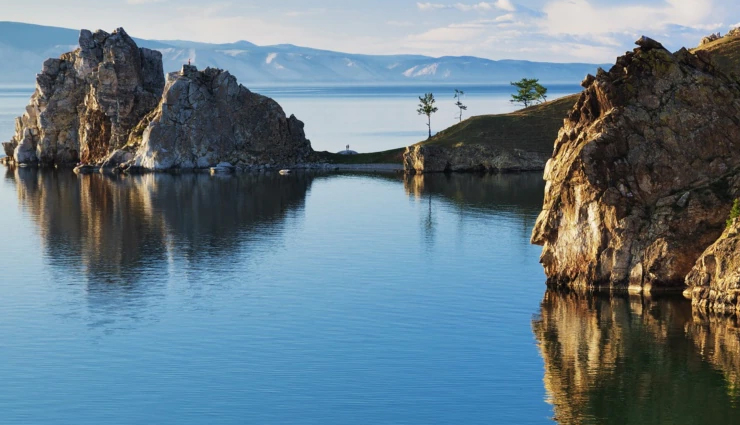
# Lake Baikal, Russia
Not content with being the world's deepest lake, Lake Baikal is also the oldest lake in the world and the largest freshwater lake by volume. This collection of superlatives have earned it UNESCO World Heritage site status and put it on many traveler's bucket list.
But don't make the mistake of thinking visiting will be easy peasy. The lake is located in Siberia, which means you'll have to put in some work and planning to see it. Don't be discouraged though. Its status has meant that tourism infrastructure exists on its shores.
The lake is home to Buryat tribes, which sometimes allow foreigners to come and share their lives as sheep, camel, goat and horse herders. If you're able to find a tour that allows for this experience, we highly recommend it.





